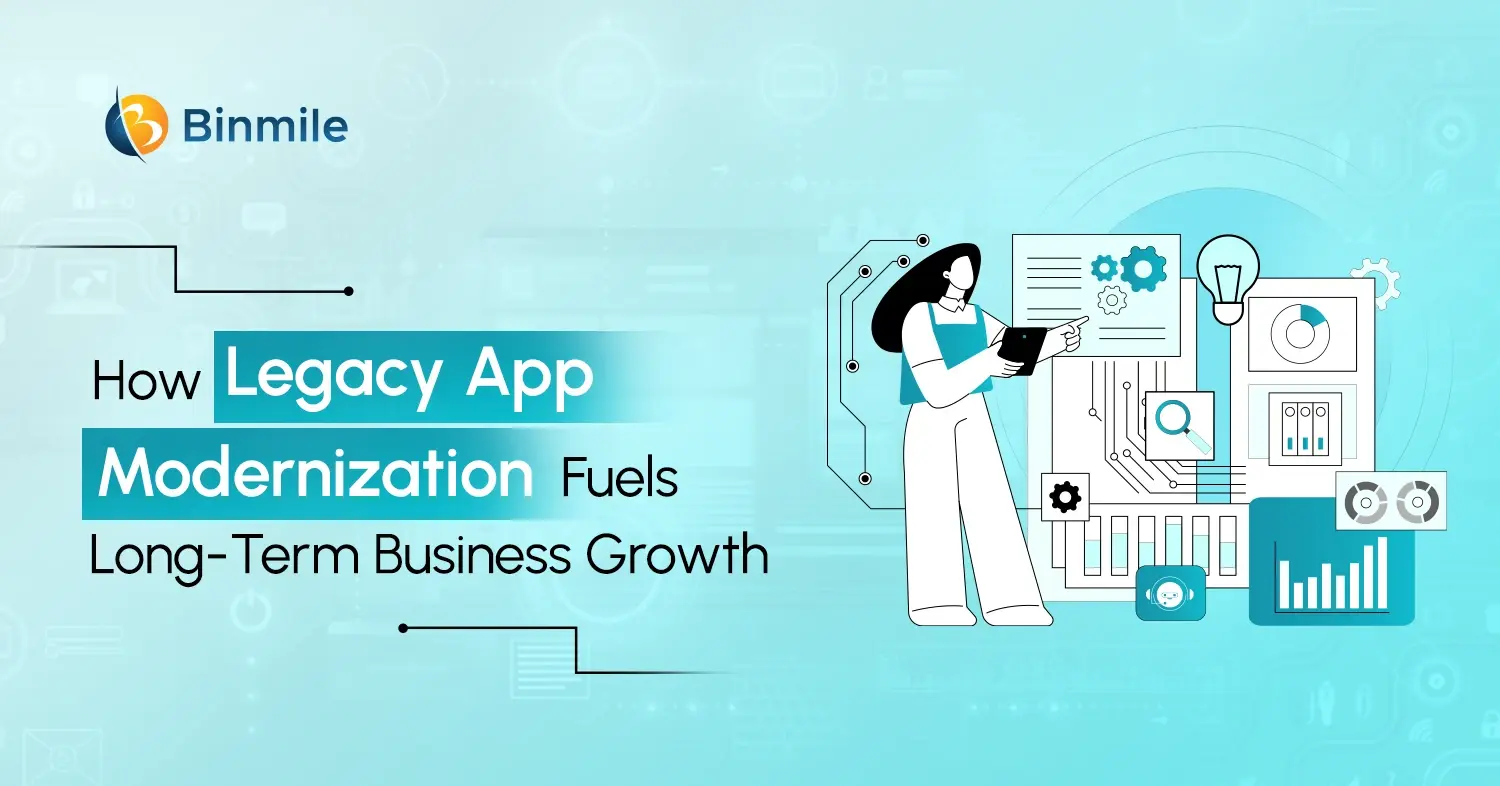With the advent of technologies such as Generative Artificial Intelligence, Hyperautomation, ML, or AI, the internet has seen a paradigm shift. The way we consume information or search for it is also constantly evolving. Forget about the days when you would type in keywords to get the search results. The time has come for developments in AI have make it possible to produce more relevant results that are adjusted in real-time based on factors such as browsing history, the intent commonly associated with the words used, and high-performing content from similar searches. In simpler terms, AI search engines mean that rather than having to navigate through a sea of URLs, users can get the relevant answer compiled from the entire internet.
Tired of sifting through pages of irrelevant search results? Traditional search engines are struggling to keep up with the complexity and intent behind modern queries. Enter AI-powered search engines — smarter, faster, and more intuitive. These next-gen tools use natural language processing, machine learning, and user behavior analysis to deliver accurate results in seconds. In this blog, we’ll explore how AI is shaping the future of search and what it means for businesses, users, and marketers.
From Keywords to Conversations: The Evolution of AI Search Engines
What roles do AI play in search engines? A question we never thought we’d look forward to. But with the advances in artificial intelligence (AI), search engines have become more than a source of information. AI has empowered search engines to drive innovation in AI and competition. Search engines now can understand natural language queries, rank web pages based on relevance and quality, personalize results for each user, and provide rich and interactive features such as voice search, image search, and knowledge graphs. AI also helps search engines combat spam, fraud, and misinformation, and improve user experience and satisfaction.
The Rise of AI Search Engines: A Look at AI’s Impact on Search Engines

What is AI-powered Multi-search? Recently, Google launched two new search features, the first being the “circle to search” and the second being the “AI-powered multi-search” experience, seemingly an upgrade to Google Lens.
According to Google, Circle to Search is “ a new way to search anything on your Android phone without switching apps. Now, with a simple gesture, you can select what you’re curious about in whatever way comes naturally to you — like circling, highlighting, scribbling, or tapping — and get more information right where you are.”
Multi-Search is not a new feature and was introduced in 2022 for images. However, Google has upgraded it so that users can now search with an image and text simultaneously using their mobile phones. All users need to do is take a photo with their camera, upload a photo from their library, or upload a screenshot. Next, a user can ask a question using the Google app for iOS or Android, and the new AI-powered multi-search experience will show results “with AI-powered insights that go beyond just visual matches.” Thus, giving users the ability to ask more complex or nuanced questions about what they see, and quickly find and understand key information.
Know the Difference: Artificial Intelligence Vs Intelligent Automation
7 Ways How AI Search Engines Are Empowering Users with Diverse Needs
We now know what AI-powered search engines are capable of, so let’s move on to how artificial technology is revamping the way we find information on the internet.

- Personalized Search Results: Users can tailor search results to their specific needs by combining personal images with relevant keywords. This can be helpful for tasks like finding similar home decor styles, identifying skin concerns, or even getting personalized recipe recommendations based on the ingredients you have on hand.
- Visual Identification: One can easily identify objects, landmarks, or even products with greater accuracy by combining image search with descriptive text queries. It is quite helpful for finding plants, clothing, furniture, or anything a user might encounter in his daily life.
- Enhanced Shopping Experience: Experience advanced product searches with the integration of AI in retail. Refine your product searches by combining images with specific details like color, brand, or style. Imagine finding a dress you love online but only having a picture. Upload the image and add keywords like “long blue dress” to find similar options or the exact product from different retailers.
- Breaking Language Barriers: Overcome language barriers by searching for information using both images and text in different languages. This can be incredibly useful while traveling or researching topics in foreign languages.
- Multi-dimensional Learning: Gain a deeper understanding of complex concepts by combining visual elements with textual explanations. Students can use multi-search to visualize scientific concepts, historical events, or even art movements, enriching their learning experience.
- Fueling Creativity: Spark inspiration and unlock new ideas by using multi-search to explore visual concepts and their corresponding textual information. This can be beneficial for artists, designers, or anyone looking for creative prompts or references.
- Accessibility for All: Multi-search empowers users with visual impairments or language disabilities by providing an alternative way to access information. Users can search using images and receive relevant text descriptions or vice versa, making information more accessible to a wider audience.
AI Search Engines: Looking Ahead
Artificial Intelligence in Search Engines with “Circle to Search,” or “AI-powered multi-search,” is still in its early stages, but it holds immense potential to revolutionize the way we interact with information. As AI technology continues to evolve, we can expect even more sophisticated features and applications that cater to an even wider range of user needs.
However, there are certain challenges that the technology needs to overcome. The primary concerns are privacy-related to how user data is handled and protected. Ensuring fairness in search results and avoiding reinforcing existing biases remains a challenge, requiring continuous refinement of algorithms. Not just Google but Search Engine providers must navigate these hurdles to provide value without compromising users’ privacy or trust.
Wrapping Up
AI-powered search engines are here to let you make the most of the Internet by searching for information on the go to make it easier thanks to advanced technologies. The internet is all about exploration, and Google, with these new AI-powered insights for multi-search at the forefront, is bringing unimaginable changes to express what one is looking for, and that too, in the most natural way. AI agents are crucial in enhancing these interactions, making searches more contextual and personalized. Thus, as technology advances, how we interact will also transform. Google’s AI-powered Multi-Search and Circle to Search are just the tip of the iceberg. We can expect to witness more such wonders as more and more organizations embrace the idea of a more intuitive, intelligent, personalized, and user-friendly search experience. However, responsible AI usage must be at the core to ensure a positive and accountable impact on users and society.
Frequently Asked Questions
An AI search engine is a search system that uses artificial intelligence technologies, such as machine learning, natural language processing (NLP), and semantic search, to deliver more accurate, relevant, and personalized results. Unlike traditional keyword-based search engines, AI search engines understand user intent, context, and query meaning to improve the search experience and efficiency.
AI search engines offer smarter and more personalized results compared to traditional ones. They understand the context and intent behind queries, not just keywords, which leads to more accurate answers. They can also handle natural language questions, learn from user behavior, and continuously improve over time. This makes them ideal for businesses and users seeking faster, more relevant information.
Yes, AI search engines will significantly enhance user experience by delivering more accurate, personalized, and context-aware results. They understand natural language, predict user intent, and learn from past interactions to offer faster and more relevant information. This leads to a smoother, more intuitive search process, improving overall satisfaction for users.
As discussed in the blog, AI in search engines holds immense potential. Therefore, the future of search engines is going to bring a personalized and intuitive search experience where AI-driven algorithms proactively understand and cater to user preferences and needs — going above and beyond their expectations.









